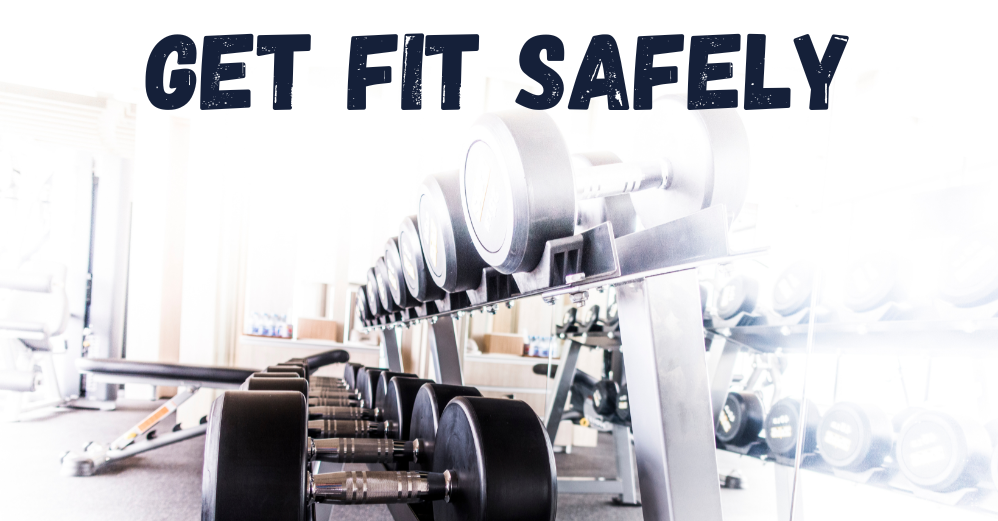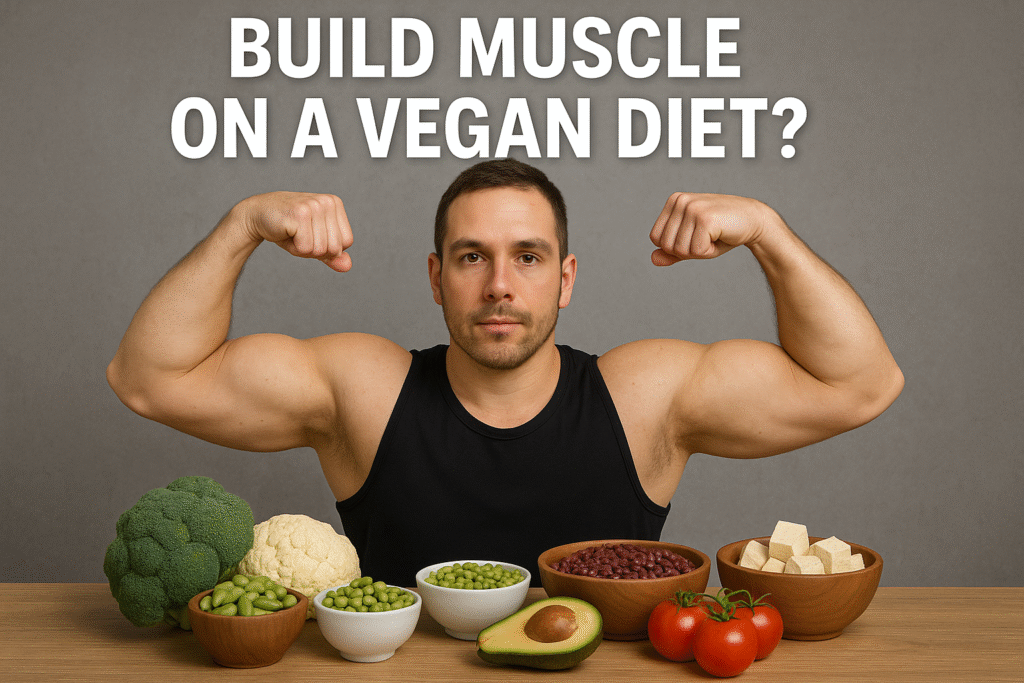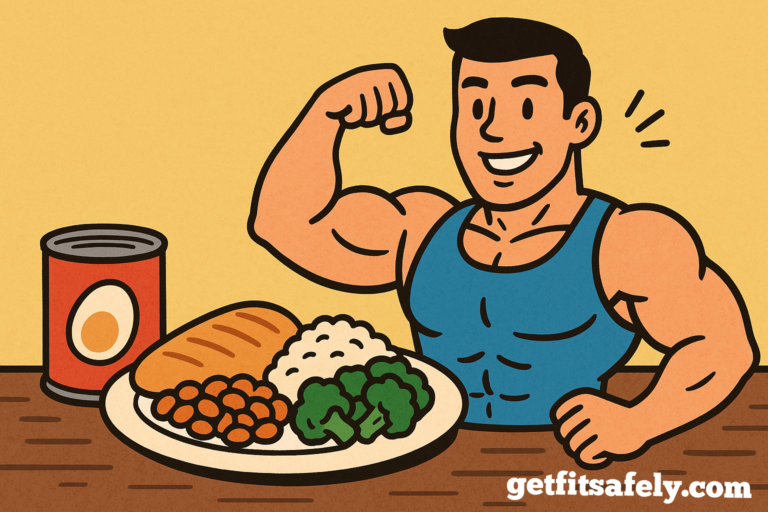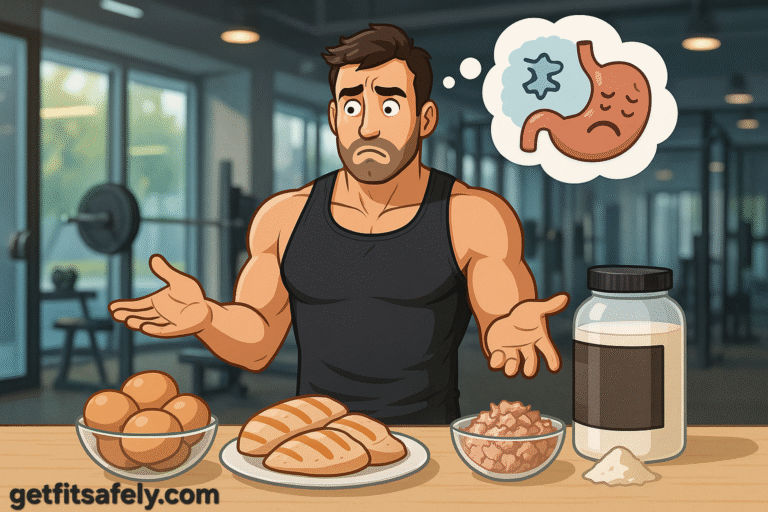When you say at the gym that you’re not eating red meat right now, that whey is on pause, and you’re betting everything on tofu, chickpeas, and pea protein… silence falls.
That look of “okay, rest in peace, brother.”
But I wasn’t giving up on lifting.
I was just testing something: can I keep building muscle relying mostly on plant-based sources?
And most importantly… without powdered leucine?
Yes. And no, it’s not a gym myth.
But you need to know exactly what you’re doing.
What makes leucine so special?
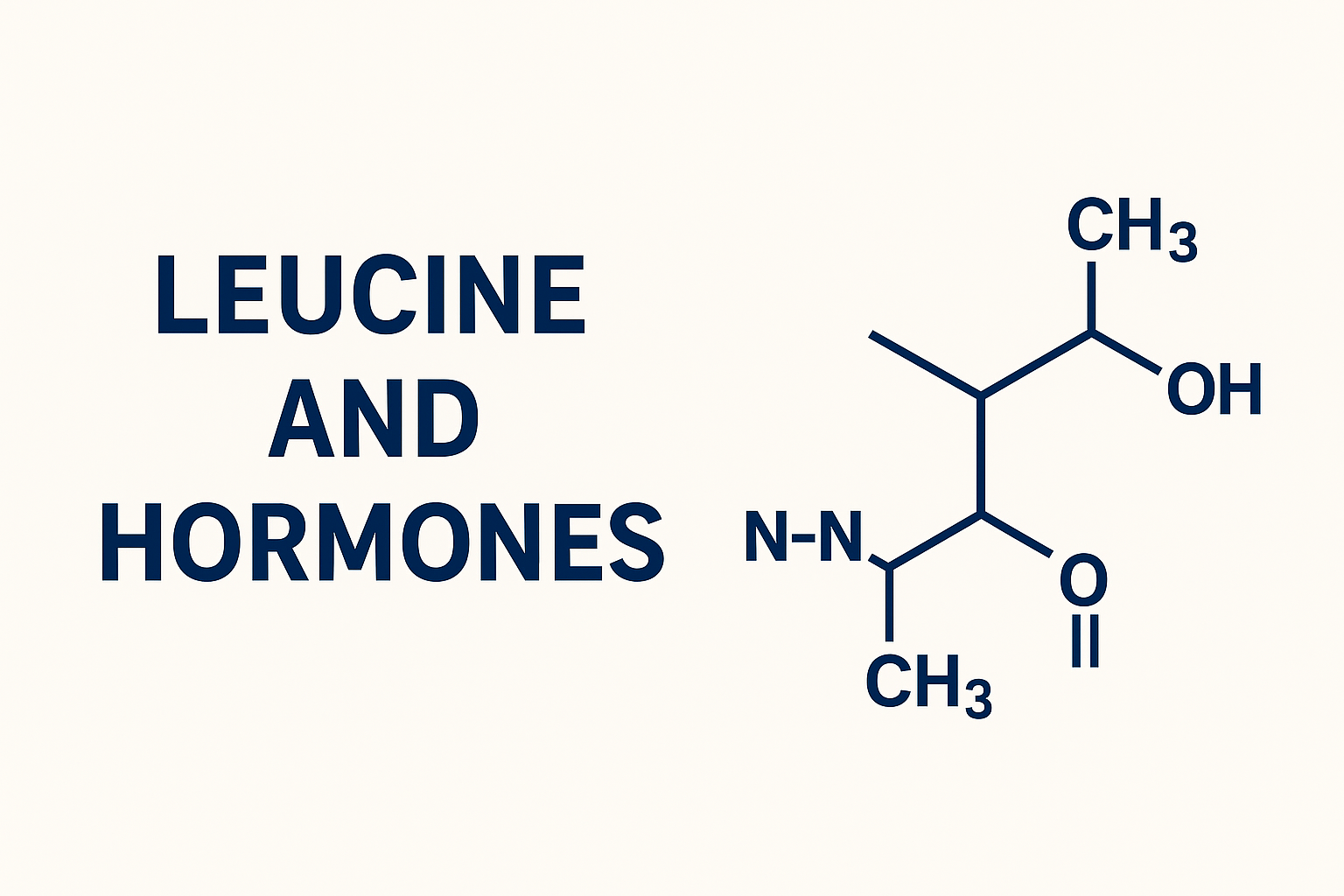
Leucine isn’t just another protein: it’s the trigger.
It’s the amino acid that activates mTOR, a key metabolic pathway that stimulates muscle protein synthesis.
Translation: it tells your muscles, “repair, grow, rebuild stronger.”
Without enough leucine per meal, that response doesn’t fully kick in.
You can eat 150g of chickpeas, but if you don’t reach the famous 2.5g of leucine, your body won’t react the way you hope.
That’s why people who eat meat, fish, or whey have it easy.
With 100g of chicken or 30g of whey, you’re already set.
But with plant-based foods?
Things get complicated.
Plant proteins: you need to know them well
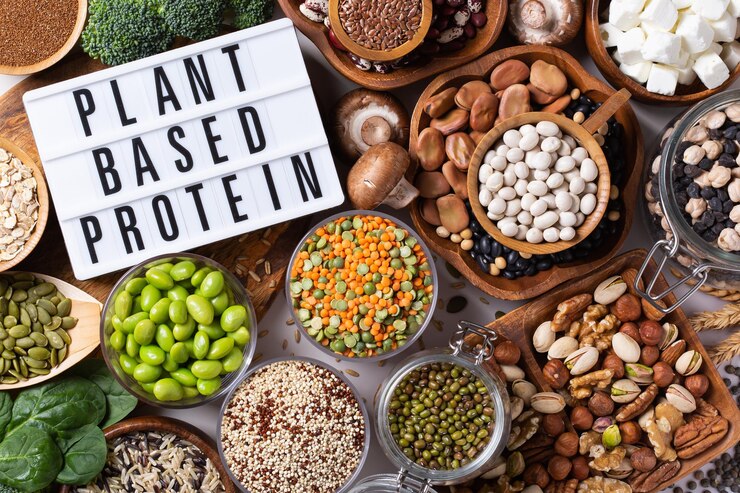
Many think plant proteins are “worth less.” That’s not true.
But they must be handled differently.
Animal proteins are complete.
That means they contain all 9 essential amino acids, in the right proportions.
They also have high bioavailability — your body absorbs and uses them very efficiently.
Plant proteins, on the other hand, often lack one or two key amino acids (like lysine or methionine).
Some are also bound to fiber or antinutrients that reduce absorption.
And what about leucine, which is crucial to stimulate muscle growth?
It’s there — but in lower amounts than animal sources.
The point isn’t that they’re worse.
It’s that they must be combined and balanced properly to deliver the same result.
With animal proteins, you can go by feel.
With plant proteins, you need a bit more strategy.
The goal isn’t to obsess over a “miracle food,” but to build rich, balanced meals that exceed 30–35g of total protein and aim for that golden 2.5g of leucine per meal.
How much protein is in common plant foods?
| Food | Serving Size | Protein (g) | Leucine (g estimated) |
|---|---|---|---|
| Cooked lentils | 100g | 9g | 1.3g |
| Cooked chickpeas | 100g | 8.9g | 1.2g |
| Black beans | 100g | 8g | 1.1g |
| Edamame soybeans | 100g | 11g | 2g |
| Firm tofu | 100g | 14g | 1.6g |
| Tempeh | 100g | 19g | 2.2g |
| Raw oats | 50g | 6g | 0.5g |
| Cooked quinoa | 100g | 4g | 0.4g |
| Pumpkin seeds | 30g | 9g | 0.7g |
| Pea protein isolate | 30g (1 scoop) | 24–27g | 2.4–2.6g |
Note: average values, may vary slightly depending on brand or preparation.
Do you need to supplement leucine?

Not if you plan your meals right
The urge to grab a supplement is strong.
It’s quick, convenient, “gym-style.”
But it’s not mandatory.
If you can hit your 2.5g of leucine per meal with real food — and you can with the right combos — you can skip the powder entirely.
The key is total daily balance.
For example:
- Breakfast: overnight oats + seeds + nuts
- Lunch: brown rice + lentils + kale
- Snack: whole grain bread + hummus + a spoonful of hemp seeds
- Dinner: stir-fried tofu + quinoa + steamed broccoli
- Post-workout: pea protein isolate shake + banana
Done well, a menu like this gives you 30–40g of protein per meal, with well-balanced amino acid profiles.
My real-life experience: what happened during my plant-heavy periods
I’m not vegan.
I never have been.
But during certain phases — even several months at a time — I chose to minimize animal proteins, especially red meat (which I almost never eat anymore).
I never completely excluded fish or eggs.
I’d include them occasionally, especially when the day got chaotic or I needed something quick.
But the base of my diet was plant-based:
- Tofu by the bucket
- Marinated tempeh
- Lentils everywhere
- Pea or rice protein isolate almost daily
- Rotating seeds: hemp, sunflower, pumpkin
And the result?
- About 7kg gained, at least 3kg of it clean muscle
- Strength gains, especially in pull-ups, military press, and deadlifts
- Faster recovery, less joint inflammation
- Overall improvements in digestion and mental clarity
All this without powdered leucine.
Just real food, thoughtful planning, and a lot of consistency.
Beyond muscle: it’s a mental shift too
Eating differently — even for a short time — makes you think.
It forces you to read labels.
To learn the amino acid profile of legumes.
To plan meals better.
And every kg of muscle gained, every extra rep, feels twice as satisfying — because you earned it with effort, not some magical powder shortcut.
What if a meal doesn’t hit 2.5g of leucine? Is it wasted?
No, it’s not all wasted.
But let’s say you’re not making the most of your meal’s anabolic potential.
Even with 1.5–2g of leucine, you can get a minimal stimulation — especially useful if you spread multiple protein-rich meals across the day.
But if you want to maximize muscle synthesis — especially during growth phases — aim for at least 2–3 main meals that hit that target.
You can also “compensate” with your next meal or add a small strategic snack with plant-based protein isolates to balance things out.
How to know if you’re really progressing on a plant-heavy diet
Don’t let the scale fool you.
Here’s what I recommend tracking:
- Progress in the gym: if your lifts are going up (even slowly), you’re doing fine
- Body composition: monthly photos > single weigh-ins
- Recovery: are you less wrecked after leg day? That’s a great sign
- Appetite and digestion: if you digest better and eat more consistently, you’ve found a rhythm
Feeling “better” isn’t enough: you need consistent, concrete data — but don’t get obsessed.
Common mistakes when switching to plant proteins
- Eating too little: many plant foods are filling, but not calorie-dense. You might accidentally stay in a deficit.
- Skipping fats and carbs: these are essential for hormone balance and recovery.
- Going fiber crazy: jumping from 20g to 50g of fiber overnight will destroy your stomach. Increase gradually.
- Not balancing sources: eating only chickpeas or only oats isn’t enough. You need variety for a complete amino acid profile.
Do you need to calculate everything down to the gram? Only if you’re going all in
If you’re a beginner or train 2–3 times a week, eating with variety and common sense is enough.
But if you’re serious about gaining mass, entering a true bulking phase, and seeing real progress — the details matter.
You don’t need to be a tracking slave, but for a few weeks it can help:
- Knowing how much protein you’re getting
- Whether you’re hitting 2.5g of leucine in main meals
- Whether you’re meeting your real calorie needs
After a while, you get the hang of it and start doing it naturally.
Are plant proteins better for the body?
It depends on the context.
Plant proteins offer some extra benefits compared to animal ones:
- More fiber, which helps digestion and satiety
- No cholesterol and less saturated fat
- Presence of antioxidant phytonutrients
They also tend to cause less inflammation in tissues and the gut microbiome.
Especially when compared to large amounts of red meat or processed dairy.
That said, it’s not a war between proteins.
A balanced mix — mostly plant-based with some high-quality animal sources — is likely the best path for most people.
RELATED;》》》Can I bulk without counting calories if I just eat “clean” foods?
Conclusion
Yes, you can build muscle without red meat, whey, or isolated leucine.
But you can’t just wing it.
You need to:
- Plan your meals carefully
- Hit at least 2.5g of leucine per meal
- Combine plant sources smartly
- Increase daily protein intake (2–2.2g per kg of body weight if you’re natural and aiming for mass)
- Train hard and recover seriously
No shortcuts. Just consistency and structure.
And when you look in the mirror and see yourself growing with tofu and rice… that feeling is massive.
FAQs
Do you need to eat more plant protein than animal to build mass?
Yes.
People on a mostly plant-based diet should aim for 2–2.2g of protein per kg of body weight daily to compensate for lower bioavailability.
With animal protein, 1.6–1.8g/kg is usually enough.
Are plant proteins alone enough to build muscle?
Yes, if well combined and consumed in sufficient quantity.
Many vegan athletes prove that excellent muscle mass is achievable without animal sources.
Can I eat the same meal every day (e.g., rice + lentils)?
Better not.
Repeating the same foods can lead to long-term deficiencies and digestive issues.
Rotate your sources: change up legumes, grains, seeds, cooking methods. The body loves variety.
Can I train fasted on a plant-based diet?
Yes, but you need to refuel right after with a complete meal.
A post-workout shake with fruit and plant protein isolate can be ideal.
Are plant protein isolates “natural”?
They’re processed, yes — but no more than flour or whole grain bread.
If they help you meet your protein needs in a practical, digestible way, they’re a useful tool, not the enemy.

